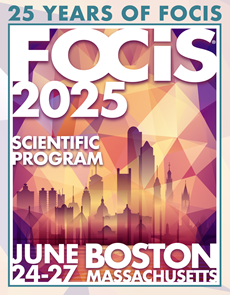Immuno-engineering and Cellular Therapies
Session: Alloreactivity from Transplant to Maternal-fetal Interface
Use of Engineered CAR-Treg Cells to Induce Immune Tolerance in Liver Transplantation – Insights from the LIBERATE Clinical Trial
Friday, June 27, 2025
2:25pm - 2:40pm East Coast USA Time
Location: Salons A-D
Rupert Kenefeck – Quell Therapeutics; Sara Seshadri – Quell Therapeutics; Florence Mehtar – Quell Therapeutics; Anastasia Voitovich – Quell Therapeutics; Christina Burke – Quell Therapeutics; Jie Wang-Jairaj – Quell Therapeutics; Laurie Baylor-Curtis – Quell Therapeutics; Andrew Lesniak – Department of Pathology – University of Pittsburgh; Anthony Demetris – Department of Pathology – University of Pittsburgh; Nathalie Belmonte – Quell Therapeutics; Alberto Sanchez-Fueyo – King's College London; Luke Devey – Quell Therapeutics
- MM
Marc Martinez-Llordella, PhD
VP Biology & Founder
Quell Therapeutics
London, England, United Kingdom
Presenting Author(s)
Abstract Text: LIBERATE is a first-in-human Phase I/IIa clinical trial designed to evaluate the safety and activity of autologous engineered Tregs in promoting liver transplantation tolerance in HLA-A2-negative patients who have received a graft from an HLA-A2-positive donor. A proprietary GMP manufacturing process has been developed to engineer recipient-derived QEL-001 cell products that express an anti-HLA-A2 targeted CAR, with a FOXP3 phenotype-lock, and a safety-switch. An extensive characterization of QEL-001 CAR-Treg products has demonstrated the maintenance of phenotypic and functional characteristics of unmodified-Tregs.
A safety cohort consisting of three patients found QEL-001 to be well tolerated within the protocol-defined dose range, with no serious adverse events or dose-limiting toxicities. Comprehensive immunomonitoring of blood samples by FACS and scRNAseq analysis showed persistence of CAR-Tregs in circulation for up to 12-months post-infusion, and maintenance of canonical markers of stable and effective Tregs. Furthermore, liver biopsies collected post-infusion demonstrated graft trafficking and phenotypic stability, leading to substantial enrichment of CAR-Tregs in the liver compared to the periphery.
An expansion cohort is currently being conducted with the addition of lymphodepletion by low-dose rATG previous to QEL-001 infusion. Active ATG was cleared from circulation prior cell infusion and mediated a significant reduction in T-cell frequencies. QEL-001 CAR-Treg engraftment levels in circulation was improved compared to the safety cohort who did not receive rATG-conditioning, and the Treg/Teff ratio increased favoring immunoregulation.
This study provides pioneering data on the homeostasis and functionality of engineered Tregs, informing the development of future tolerogenic therapies in a broad range of clinical settings.
A safety cohort consisting of three patients found QEL-001 to be well tolerated within the protocol-defined dose range, with no serious adverse events or dose-limiting toxicities. Comprehensive immunomonitoring of blood samples by FACS and scRNAseq analysis showed persistence of CAR-Tregs in circulation for up to 12-months post-infusion, and maintenance of canonical markers of stable and effective Tregs. Furthermore, liver biopsies collected post-infusion demonstrated graft trafficking and phenotypic stability, leading to substantial enrichment of CAR-Tregs in the liver compared to the periphery.
An expansion cohort is currently being conducted with the addition of lymphodepletion by low-dose rATG previous to QEL-001 infusion. Active ATG was cleared from circulation prior cell infusion and mediated a significant reduction in T-cell frequencies. QEL-001 CAR-Treg engraftment levels in circulation was improved compared to the safety cohort who did not receive rATG-conditioning, and the Treg/Teff ratio increased favoring immunoregulation.
This study provides pioneering data on the homeostasis and functionality of engineered Tregs, informing the development of future tolerogenic therapies in a broad range of clinical settings.

